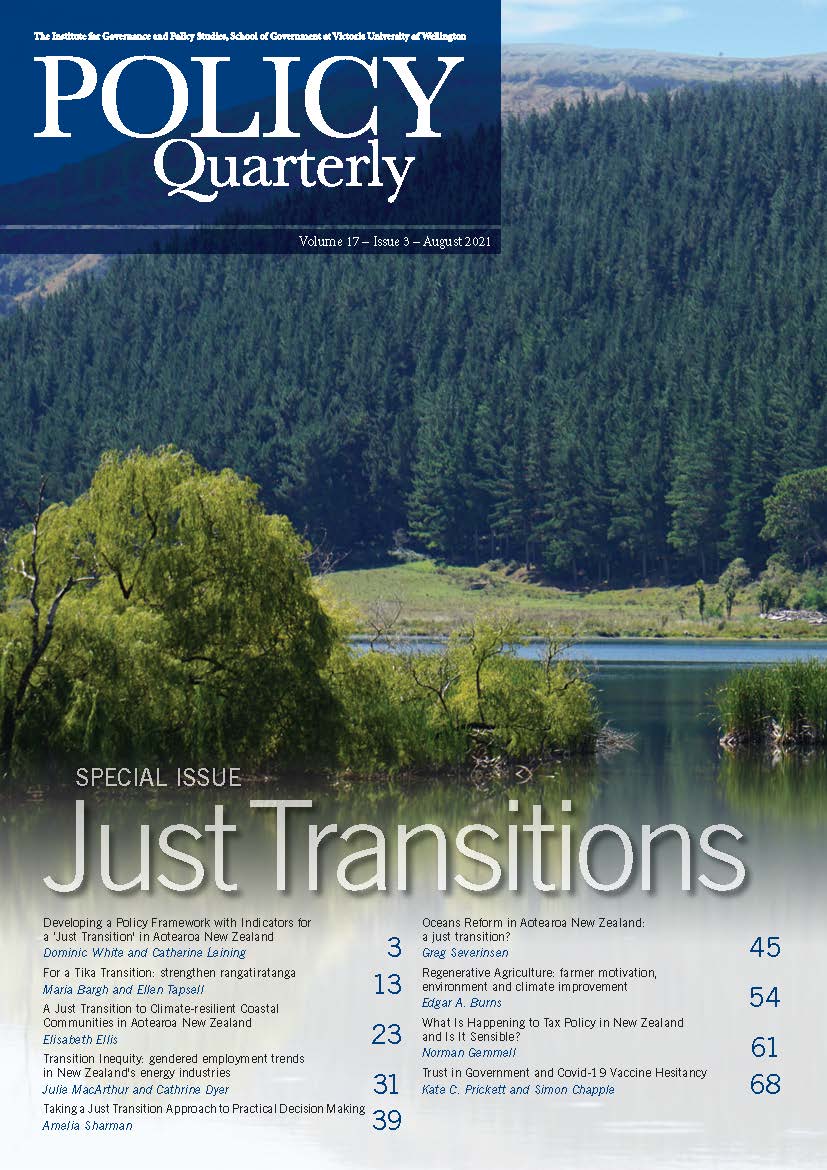Trust in Government and Covid-19 Vaccine Hesitancy
DOI:
https://doi.org/10.26686/pq.v17i3.7135Abstract
The long-term success of New Zealand’s Covid-19 elimination plan and the re-opening of fortress New Zealand rests on high population uptake of the Covid-19 vaccine. Understanding factors that contribute to vaccine hesitancy – and potential inequities in access and uptake – are consequently essential for the efficacy of the national immunisation programme which began rolling out to the general population in July 2021. Prior research on the New Zealand context has documented socio-demographic disparities in Covid-19 vaccine hesitancy (Horizon Research, 2020; Prickett, Habibi and Atatoa Carr, 2021; Thaker, 2021). However, little research has been undertaken to examine how psychosocial elements – such as people’s trust in institutions – might be associated with people’s vaccine intent and cast some light on the reasons underpinning their intent.
Downloads
Downloads
Published
Versions
- 2021-09-23 (2)
- 2021-09-23 (1)
Issue
Section
License
Permission: In the interest of promoting debate and wider dissemination, the IGPS encourages use of all or part of the articles appearing in PQ, where there is no element of commercial gain. Appropriate acknowledgement of both author and source should be made in all cases. Please direct requests for permission to reprint articles from this publication to Policy-Quarterly@vuw.ac.nz.



